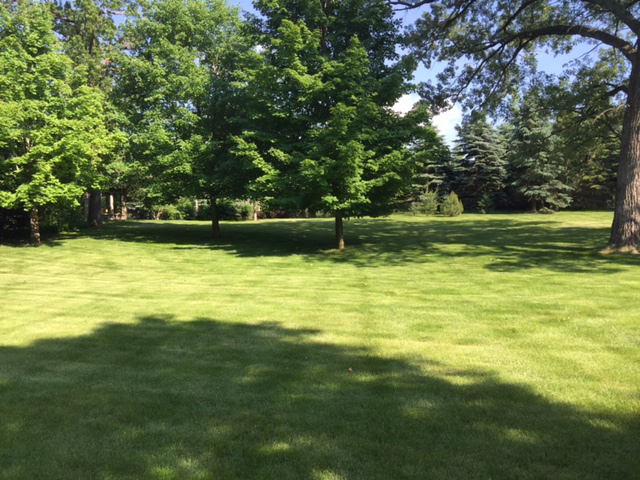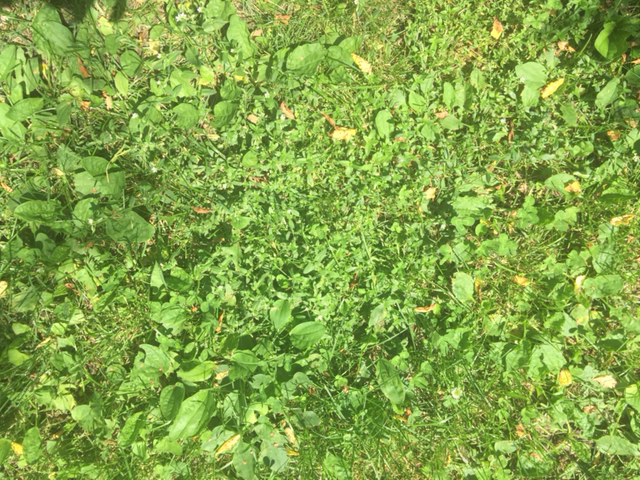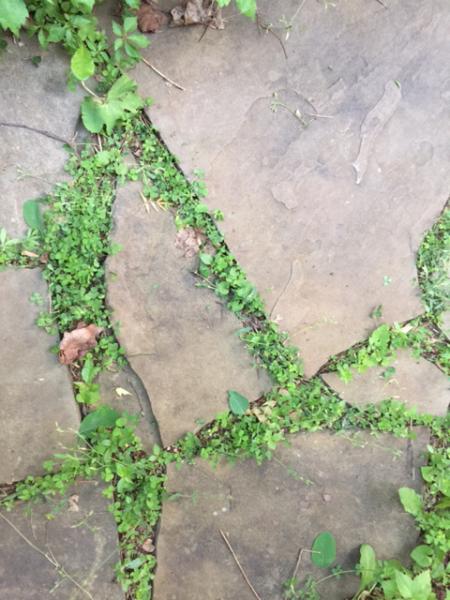OK . . . last month I talked about . . . preventing / fixing urine scald in your lawn . . . after we do our business . . . sorry . . . but we are dogs!
Some of you requested that I address dog-safe lawn care . . . fertilizers and weed killers. This is a big subject and there is no easy answer, but for our sake please consider a more natural and less toxic plan for your lawn.
Lawn & garden care is comprised of fertilizers, weed control, and proper watering. There are many fertilizers out there . . . many contain toxic, synthetic, chemical ingredients. These are not safe for you or your pets. They are very effective . . . but at what price?
Our world is so full of chemicals and toxins and we wonder why the cancer rate is so out of control . . . not only in humans but in us dogs. While we cannot completely avoid the chemical toxins, we can certainly care for our lawns and gardens in a way that is responsible and healthier for us both.
The safest way to care for your lawns and gardens is with natural or organic fertilizers such as compost, manure, lime and gypsum.
. . . super cool . . . so if I poop all over the yard it will help??? OK . . . kidding.
Mom uses gypsum, lime, and/or bone meal . . . depending upon what the lawn needs. These are all great fertilizers and are completely safe for us furry kids. With proper watering, our lawn is amazing . . . beautiful green color and thick.

Calcium is the most important mineral for healthy grass.
Lime
Lime is calcium oxide, made from pulverized limestone, and raises the pH of the soil, which lowers the acidity. The best way to determine whether your soil needs lime is to test its pH. The target pH level of turf grass is between 6.2 and 6.5, so if your soil has a lower pH, an application of lime will help. This is often an issue in the Eastern part of the US.
Gypsum
|
Gypsum is a mineral consisting of hydrated calcium sulfate. If the soil pH is high (a common problem in the Midwest) gypsum helps reduce the pH. It helps correct compacted soil, helps soil retain water, and replaces excessive sodium with calcium and sulfer to boost plant growth. To determine if your soil can benefit from gypsum, test saline amounts or simply observe if you are working with soil that is heavy with clay or hard to break up. Another benefit is that gypsum does not change the “organic” status of a garden or lawn. |
|
|
|---|
If you still want the convenience of a commercial prepared fertilizer, mom found two that seem to be the safer bets:
Pet Safe Lawn Fertilizer
http://www.petsafe-fertilizer.com
It is “Pet Safe” primarily in the fact that it is free of herbicides and pesticides and is a fast absorbing product. Whereas most fertilizers require you to wait 24-48 hours before allowing your pets on the lawn, this product absorbs quickly as soon as it is “safe” as soon as it is watered in.
It is not organic and it does not kill weeds, but the thicker and healthier your grass is, the less weeds you will have.
Now that we have discussed fertilizers, let’s talk about those nasty weeds! A lawn full of weeds signals a bigger problem . . . with the soil.

- Lack of soil nutrients
- Soil Compaction
- Thick thatch layer
- Inadequate water, or too much moisture
- Too much shade for the turf grass to develop
These are the problems that allow the weeds to take over . . . crab grass, dandelions, etc. Unfortunately unless you can manually extract the weeds from their roots, controlling the weeds requires a Herbicide (noun)
Herbicide(s), also commonly known as weed killers, are chemical substances used to control unwanted plants. Selective herbicides control specific weed species, while leaving the desired crop relatively unharmed.
We have a very large lawn and there are areas of it that the weeds are taking over . . . so mom uses a weed and feed product once per year . . . in the Spring. After application she bans us dogs from the lawn for a full week and makes certain the lawn is heavily watered . . . either with rain or irrigation. That way she knows that the chemical ingredients are well worked into the soil and not available to be absorbed or consumed by us dogs. She transports us to and from Top Dog in the Tahoe to keep us off the grass and keep us safe.

For her garden pathways, sidewalks, etc. she refuses to use Roundup as it is extremely toxic and just dangerous. She makes a natural weed kill with vinegar, salt and a bit of Dawn dish soap. This really works well . . . but she says to be careful where you spray it because it is non-selective, like any weed kill, and will kill all plants . . . including your beautiful flowers.
For a pre-emergent, preventing grass and weeds from growing, she uses cornmeal. Researchers at Iowa State University discovered by accident that cornmeal acts as an herbicide while they were doing disease research. Cornmeal contains a chemical that acts as a pre-emergent on plant seeds. It will prevent seeds from germinating but will not harm the existing plants.
Read more at Gardening Know How:
Homemade Pet Friendly Weed Killer
How To Use Cornmeal In The Garden
So . . . you can have a beautiful lawn and keep us dogs safe
. . . OK gotta go play in the grass!!!
Ziggy


